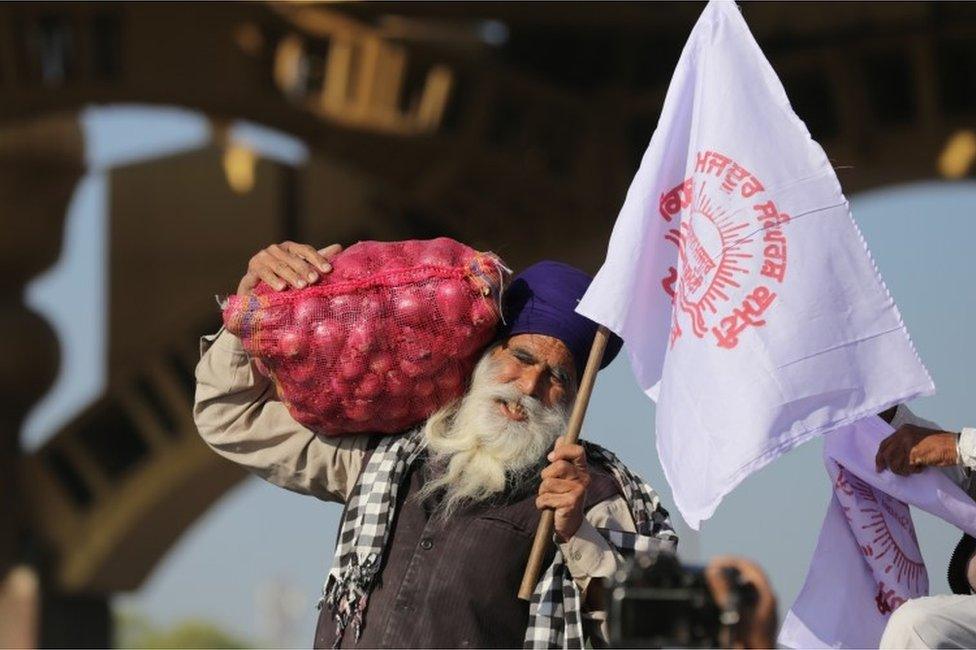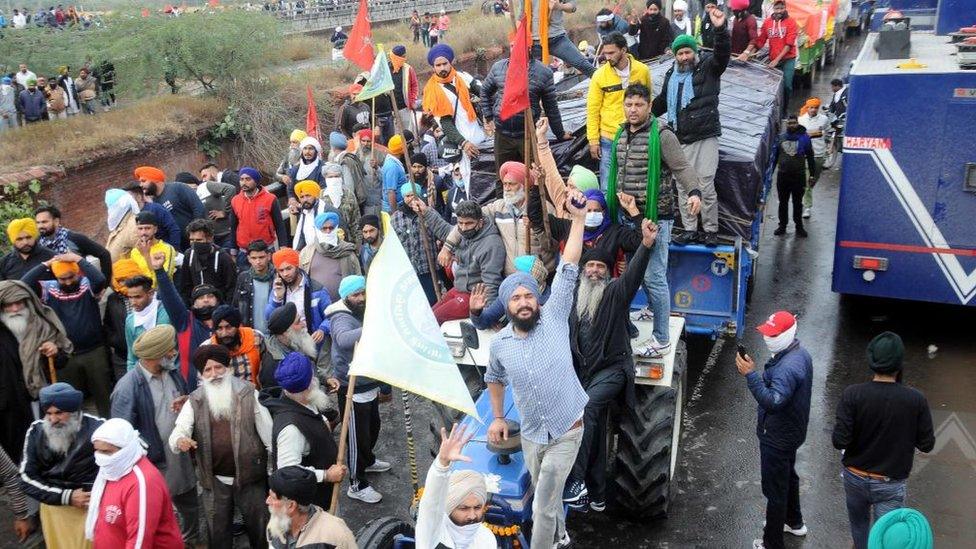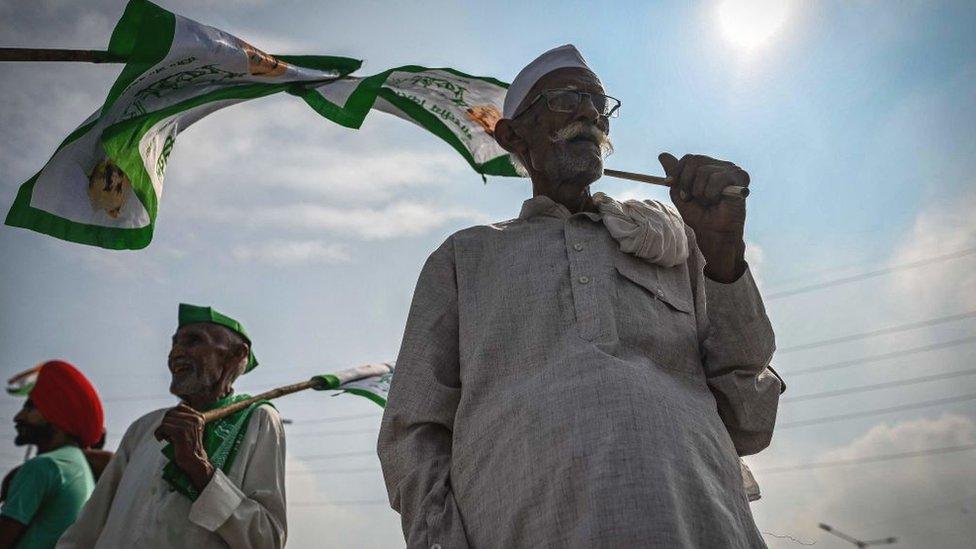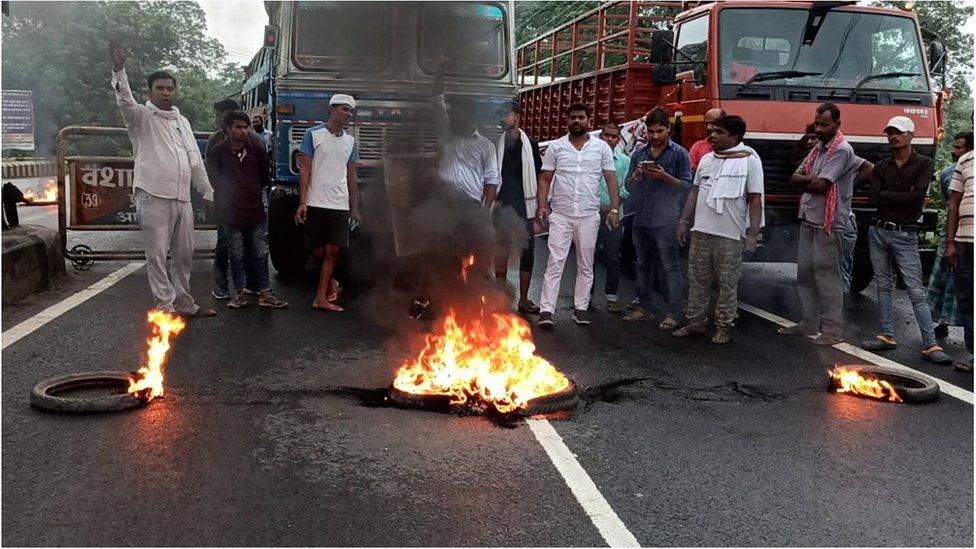India farmers allowed to protest in Delhi after clashes
- Published
Indian farmers clash with police
Farmers from India's Punjab state have begun entering Delhi to protest reforms they say are against their interests.
Thousands of them marched to Delhi, where barricades at the border led to clashes with police.
But they are now being escorted by the police to a protest site where they say they will continue demonstrating.
The government denies that the reforms, which open the farming sector to private players, will hurt farmers.
"Protesting farmers will be allowed to enter the national capital," the Delhi Police Commissioner told local media, adding that they will be allowed to protest and urged them do so peacefully.
The farmers have been marching to the capital since early this week. Two farmers associations put out a statement on Friday saying that they expect 50,000 farmers to reach the Delhi border from the neighbouring state of Haryana. Local media reports say drone cameras have been deployed for security surveillance at the Delhi-Haryana border.
The farmers are desperate to enter Delhi, says BBC Hindi's Dilnawaz Pasha, who is with a group of farmers near the border.
"They are travelling with trolleys full of rice and grains and are cooking their own food. They say they're ready for a long battle."
Photos and videos show dramatic visuals of the farmers clashing with police, who have used tear gas and water cannons to stop them.
Media reports say that the Punjab Chief Minister Amarinder Singh has urged the federal government to defuse the tension at the border.

The reforms seek to loosen rules around sale, pricing and storage of farm produce
Farmers defied barricades to enter Haryana state on Thursday, despite police trying to stop them with water cannons.
Allow X content?
This article contains content provided by X. We ask for your permission before anything is loaded, as they may be using cookies and other technologies. You may want to read X’s cookie policy, external and privacy policy, external before accepting. To view this content choose ‘accept and continue’.

Thousands of them, including some on tractors, clashed with Haryana police. At one point, photos showed protesting farmers allegedly throwing barricades off a bridge in Haryana after police tried to stop their march to Delhi.

Some protested on their tractors
What are the reforms?
Farmers in northern India have been protesting the reforms since they were first introduced in September. Thousands took to the streets back then, where they blocked motorways and railway tracks in different states.
The reforms seek to loosen rules around sale, pricing and storage of farm produce - rules that have protected Indian farmers from the free market for decades.
Farmers say they will continue to protest until the government rolls back the reforms.
Most farmers sell the majority of their produce at government-controlled wholesale markets at an assured floor price called the Minimum Support Price (MSP). They're worried that market forces will eventually dictate prices and that the government will remove MSP, leaving farmers in the lurch.
The governing Bharatiya Janata Party (BJP) has denied this but farmers say there is no guarantee that it won't happen.
Instead, the BJP says these reforms are necessary to increase farm incomes and productivity. While farmers in many states can already sell to private layers, the three bills offer a national framework.
- Published27 September 2021

- Published25 September 2020
